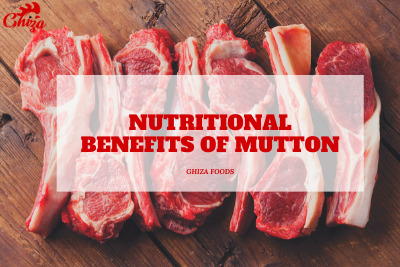
Mutton is one of the foods which has a variety of minerals and vitamins. But it contains more fat than beef. Mutton can be a beneficial ingredient in an overall healthy diet. There are some differences between lamb and goat meat and both belong to red meat but different from each other in nutrition. Mutton contains CLA ( Conjugated Linoleic Acid), which is a fatty acid, known to prevent cancer and helps to avoid inflammation. Eating mutton regularly may also lower your risk of inflammation in the blood vessels, while it can also stabilize the heartbeat.
Basic Information:
Roasted meat does not contain carbohydrates, while 3-ounces of roasted meat has 199 calories per serving. Protein is essential for maintaining and building a strong immune system. Mutton provides 28 grams of protein per serving of 3-ounces or 56% of the daily value. They contain 9 grams of fat or 14% of the daily value in 3-ounces. Mutton contains 93 mg of cholesterol. Dietary cholesterol can raise your blood cholesterol levels.
Therefore, eating mutton or any other type of meat is beneficial for bodybuilders, recovering athletes, and people post-surgery. Eating mutton promotes optimal nutrition whenever muscle tissue needs to be built up or repaired. Also it is an outstanding source of many vitamins and minerals, including iron, zinc, and vitamin B12.
A rich source of vitamins, minerals, and high-quality proteins, meat can be an excellent component of a healthy diet. Mutton and its nutritional value guarantee good human health and help to maintain energy and vitality. Mutton is a healthy alternative to beef and chicken because of its lower calories, fat, and cholesterol total. According to the Alabama Cooperative Extension Service, mutton comprises 63 percent of red meat consumed worldwide.
Regular consumption of mutton may promote muscle growth, and performance. In addition, it helps prevent anemia.
Mutton is popular for its unique taste and also offers various health benefits. Mutton has various nutrients that are essential for human growth and development.
Some of the health benefits of mutton are listed below.
Maintenance of muscle:
Mutton is a great source of high-quality protein and nutritional supplements.
In fact, it contains all nine amino acids you need and is referred to as a complete protein.
Mutton has a good amount of protein, which in turn helps you maintain overall health. Older people especially need high-quality proteins that strengthen their muscles.
Nutrition Facts:
A 3.5-ounce (100-gram) serving of roasted mutton provides the following nutrients.
Calories: 234
Total Fat: 11g
Sodium: 135mg
Protein: 33g
Cholesterol: 109mg
Total Carbohydrate: 0.1g
Saturated Fat: 5.1g
Calcium: 10.00mg
Iron: 4.76mg
Potassium: 409mg
Minerals and Vitamins:
Mutton is a rich source of many vitamins and minerals, including:
Phosphorus: Found in most foods, phosphorus is very essential for body growth and maintenance.
Zinc: Zinc is an essential mineral important for growth and the formation of hormones. Such as insulin and testosterone.
Iron: Mutton is rich in iron, mostly in the heme iron, which absorbs more efficiently than non-heme iron found in plants.
In addition to these, mutton contains a number of other vitamins and minerals in a very small amount.
Niacin: Also called vitamin B3, niacin serves a variety of important functions in your body.
Protein: Like other types of meat, mutton is primarily composed of protein. Mutton is a high-quality protein source, providing all nine amino acids your body needs for growth and maintenance. Many people struggle to balance the meat’s high protein and high fat content. A 3-ounce serving of mutton fulfills 46 percent of most people’s daily value of protein.
Fats: Mutton contains varying amounts of fat depending on how much of it has been trimmed away, as well as the animal’s diet, age, gender, and feed. The fat content is usually around 17-21%.
Mutton has very low calories when compared to other kinds of red meat. Mutton, unlike other red meats, has very little cholesterol. Studies have shown that about 100 grams of mutton has less than a gram of cholesterol in it.
Beneficial for Kids:
Mutton contains a variety of natural, healthy fats, with oleic acid and omega-3 fatty acid, which is more beneficial for kids suffering from autism. It also prevents anemia and is thus given to menstruating girls as well. Mutton is also rich in calcium which is good for bone health.
Pleasant Taste of Mutton:
As well as being nutritious, mutton is also good in taste. Mutton is very popular because of its flavor. Mutton genuinely is nutrient-dense and healthy food. Put simply, mutton is one of the tastiest (and healthiest) foods in the world.